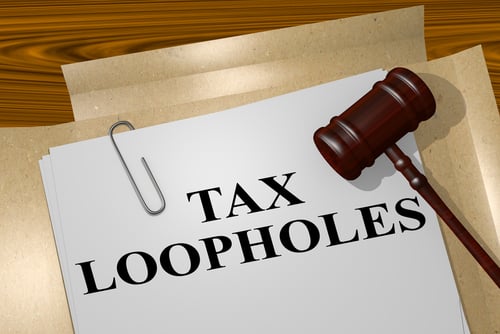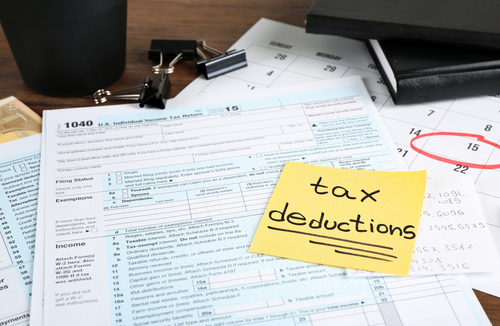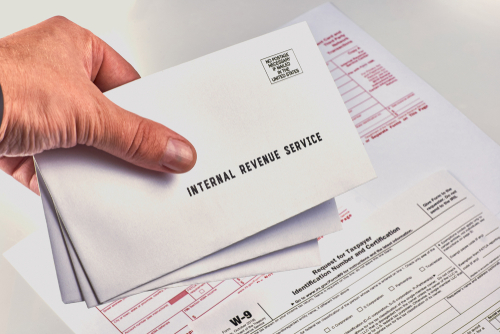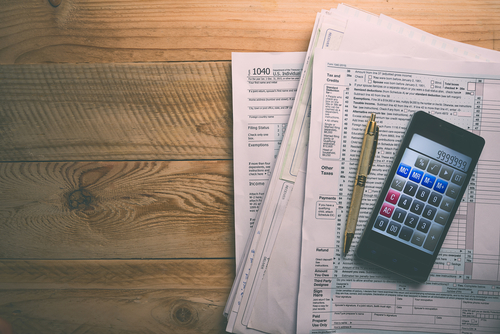
Buying and selling real estate is a large financial decision for investors, landlords, and homeowners alike. With any investment comes tax situations, payments, and legal requirements. That said, when you invest in rental properties, there are clever and legal ways you can reduce your tax burden. Today we go over some rental property tax loopholes that can help you lower your tax bills.
What are Rental Property Tax Loopholes?
Rental property tax loopholes are provisions in the tax code that allow landlords to reduce tax liability. That said, rental property tax loopholes depend on many things, such as obtaining the property, what type of investment it is, and other important factors.
Most landlords and property owners are looking to get the most from their real estate investments. Whether buying or selling real estate, investors need to know how to maximize profits and avoid unnecessary payments.
However, it’s crucial to accurately document income, expenses, profits, and other mandatory tax considerations when it comes to filing taxes. If you need assistance during tax time, it’s a wise decision to reach out to a financial advisor or tax professional.

Common Tax Benefits Landlords Should Know About
Investing in real estate and running a rental business is a great way to make money and support your future. Additionally, becoming a landlord offers multiple tax benefits such as deductions, depreciation, interest, and more. That said, let’s go over some of the most common rental property tax benefits that investors should take note of.
Maximizing Tax Deductions
Tax deductions for landlords are one of the major pros of real estate investments. However, you’re missing out on major tax benefits if you don’t know about all the deductions you can claim. Some of the most popular deductions for investors include:
-
- Mortgage Interest– Interest is one of the largest deductible expenses for rental homeowners.
- Property Repairs– You can deduct the ordinary, reasonable, and necessary repairs you make to your rental property in the year they were made.
- Home Office Costs– If you use part of your home as an office or other work-related spaces, you can deduct the cost from your taxable income.
- Travel Expenses– Investors can deduct any necessary travel costs related to their rental business.
- Management Services– Fees that investors pay to property management services are tax-deductible as operating expenses.
- Other Professional Services– Additionally, other professional services like accountants, attorneys, and legal services are tax-deductible.
- Personal Property– If investors use any personal property for rental activities, such as furniture or appliances, they may be eligible for a tax deduction.
Rental Property Depreciation

Another common tax benefit for rental investors is claiming depreciation. Depreciation is the process of deducting the costs of purchasing a rental property and deducting property improvements. That said, it’s different from deducting regular maintenance and repairs. For example, deductions for maintenance and repairs happen all at once, and depreciation happens over a period of time.
Depreciation is only valid if investors prove that their property has a useful and functional life. Additionally, you can depreciate a rental property in the United States over the course of 27.5 years at a rate of 3.636%.
Qualified Business Income Deduction
Another great tax benefit for rental investors is the Qualified Business Income deduction. Once an investor has deducted all their expenses and depreciation costs, this is another valuable tax break. The Qualified Business Income deduction is more commonly known as the pass-through income deduction.
This tax benefit allows rental investors to deduct up to 20% of their pass-through business income. In this case, business income is counted as income earned from an LLC or S-Corporation. Additionally, rental income also qualifies for this deduction. However, it’s important for landlords to keep excellent records of incoming and outgoing funds in order to take advantage of this, or any other, tax advantage. While this can seem overwhelming, working with trusted property managers in Philadelphia or your local area can help keep you on track.
That said, since this deduction is fairly new, it’s important to consult a tax advisor or professional to see if you qualify. Next, let’s go over a few common loopholes that pop up when investors sell a rental home.
Rental Property Tax Loopholes While Selling a Rental
When you sell a rental home, there are a few inevitable tax situations that are unfavorable. However, if you take note of a few rental property tax loopholes, you can save yourself some stress and money. That said, keep reading as we go over a few common rental property tax loopholes for investors to consider while selling a rental home.
How to Avoid Capital Gains Tax
When you sell a rental home for profit, it’s known as a capital gain. Unfortunately, capital gains are taxable but are not all treated the same for tax purposes. That said, the amount of time you’ve owned an asset before selling it makes a difference.
There are two types of capital gains–short-term capital and long-term capital. Short-term capital gains are treated the same as normal income. So, if you own a rental property for only a few months and then sell it for profit, it’s taxed differently than an asset you’ve owned for over a year. Long-term gains are typically taxed lower than regular income and short-term gains.
Luckily, there are ways for investors to avoid major tax payments from short-term or long-term capital gains. Keep reading while we go over some ways to defer capital gains taxes when selling an investment property.
Use 1031 Exchanges

Real estate investors can avoid paying capital gains tax by reinvesting the proceeds from the rental home sale into another similar investment property. Section 1031 of the tax code allows investors to sell a rental property while purchasing a like-kind property. Then, investors only pay taxes after making the exchange.
That said, the properties involved in the 1031 exchange must be for business purposes only. Additionally, investors must act quickly because they only have 45 days from the property sale date to find another like-kind property to replace it. Then, they must formally close on the replacement property within 180 days. Keep in mind that if you go this route and miss the closing deadline, you may have to pay full capital gains taxes on the sale of the original property.
Primary Residence Exclusion
Another rental property tax loophole is the Section 121 Primary Residence Exclusion. IRS Section 121 allows investors to exclude up to $250,000 in profits from the original property sale. That said, investors married and filing jointly may exclude up to $500,000.
To qualify for this tax break, investors must have lived in their property as their primary residence for two out of the five years before the sale. That said, the years they live in the property don’t have to be consecutive, and the deduction depends on how long you used the property as a rental versus its primary residence use.
It’s also important to note that an investor may not exclude the portion of capital gains previously used as a depreciation deduction. This is commonly known as depreciation recapture.
Not Sure How to Maximize Your Rental Investment?

All rental owners want to get the most from their investments. That said, what’s one way to make sure you’re staying in compliance and obtaining the greatest return on your investment?
Hire a property management team like Bay Property Management Group. We can help with all of your rental management needs. We’re here to help, from tenant screening to rent collection, maintenance, and accounting services.
Contact BMG today if you need management services throughout Baltimore, Philadelphia, Northern Virginia, Washington DC, and surrounding counties.
